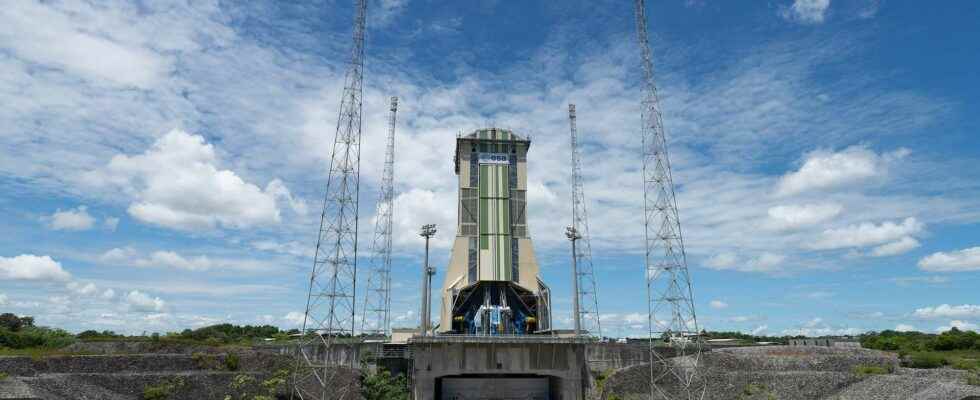Unsurprisingly, Moscow responded to sanctions imposed by the European Union and European countries. The director of Roscosmos announced the suspension of Soyuz launches from Kourou. A decision that will have consequences in the 2022 manifesto of Arianespace, which markets the Soyuz. Launch postponements of several months have already been mentioned with consequences for Arianespace and its customers.
You will also be interested
[EN VIDÉO] Ariane 6: a new European launcher to compete with Falcon 9 and Soyuz Ariane 6 is a new launcher developed by ESA. It replaces Ariane 5, capable of double launches but whose market share is threatened by the arrival of new competitors. Discover a video presentation of this audacious project.
Among Moscow’s responses to European sanctions after the Russian invasion of Ukraine, that of the suspension of the launches of Soyuz to Guiana Space Center (CSG) hit the mark. If this suspension were to last several months, or even become permanent, it would ground several satellites of Europe, the European Space Agency and OneWeb thatArianespace has plans to launch in 2022 and 2023 – while Arianespace finds an alternative, which won’t be easy.
With this seemingly innocuous decision, Russia is undermining theautonomy access to European space. Especially since the transition to Vega C and Ariadne 6facilitated by Soyuz, is very uncertain due to the undetermined date of commissioning of these two new launchers.
⚡️ Во Французской Гвиане находится 87 российских граждан. Речь идёт о сотрудниках НПО Лавочкина, которые готовили разгонный блок “Фрегат-МТ” а также сотрудниках РКЦ “Прогресс” (изготовитель ракет семейства “Союз”) и ЦЭНКИ.
Прорабатывается вопрос выезда российских сотрудников. pic.twitter.com/pT9PlB9ARe
— РОСКОСМОС (@roscosmos) February 26, 2022
After five launches in 2020, including two from the CSG, nine in 2021, but only one from the CSG, the others were carried out from the Russian spaceports of Baikonur and Vostotchny, Arianespace planned up to eight Soyuz launches this year, including three from Kourou.
After a first flight carried out on February 10 from the CSG for OneWeb, Arianespace planned two other flights from Kourou with the launch each time of two new satellites from the Galileo Constellation. The second launch of the year was scheduled for April. It is therefore postponed to an unknown date. In 2023, Arianespace planned to launch the satellite fromearth observation EarthCARE, developed in cooperation between the space agencies of Europe and Japan, as well as the Euclid infrared space telescope of the’ESA. The French government also planned to launch its CSO-3 reconnaissance satellite on a Soyuz in early 2023.
An unprecedented operational puzzle for Arianespace
If in commercial and financial terms this suspension is very bad news for Arianespace, in terms of the organization of launches it is even worse! Arianespace has no solution to replace Soyuz and must wait for the commissioning of Ariane 6. If the satellite launches Galileo and scientists may be delayed for months, OneWeb, Arianespace’s main private client on Soyuz might not be so patient. And therefore turn to foreign launchers, probably American, to launch the satellites of its constellation.
With this new geopolitical context, the question of choosing a back-up for Ariane 6 (in the event of operational problems) becomes a priority. Before the invasion of Ukraine, Soyuz was seen as the natural back-up for Ariane 6, especially for institutional missions. This is why negotiations were underway to use the Russian launcher beyond 2023 at a less regular pace. Indeed, with the commissioning of Ariane 6 and Vega C, due to European preference in terms of launch, European institutional customers using Soyuz will switch to these two new launchers. This Ariane 6 back-up issue will be discussed at the ESA Ministerial Council in November.
Interested in what you just read?
